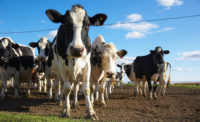Agriculture Capital, Portland, Ore., released its third annual Impact Report, measuring the positive impact of its regenerative management practices on the environment, economy and labor force.
Agriculture Capital invests in vertically integrated permanent crop operations that span over 18,500 acres of table grapes, blueberries, hazelnuts and citrus in California, Oregon and Australia.
Building on the foundation of responsible management principles detailed in previous reports, Agriculture Capital frames its accomplishments and progress in alignment with the United Nations Sustainable Development Goals, Project Drawdown climate stability solutions and the United Nations’ Principles for Responsible Investment.
Using 2018 data, Earth Economics, Tacoma, Wash., completed a limited scope evaluation of key practices on three of Agriculture Capital’s farms, projecting a net present value of millions of dollars in ecosystem service function over the next 10 years in the form of soil conservation, water quality and pest control.
“With our third impact report, we humbly continue our efforts to tell the growing story of how a regenerative food system can support people, ecosystems and the future of business,” says Wood Turner, senior vice president. “We are committed to being transparent about the opportunities created by focusing on positive impact and advancing a larger conversation about the real value of purposeful investing.”
Analyzing key areas of water use, soil health, energy use, pollinator and beneficial insect health, plastic reduction, waste, chemical use and community and workforce support, the data in this report details how Agriculture Capital’s operations are improving the way in which agricultural systems impact the planet and human health. A salient example of positive impacts includes measured improvements in native pollinator restoration across Agriculture Capital’s Oregon blueberry farms, which showed an increase in total wild pollinators by 232% from 2016 to 2018, a key indicator of ecosystem health. Additionally, Agriculture Capital reported significant improvement in water and energy efficiency across its vertically integrated citrus packing operations from 2017 to 2018.



